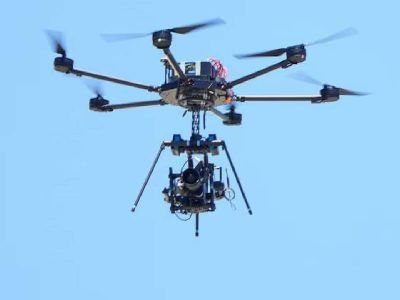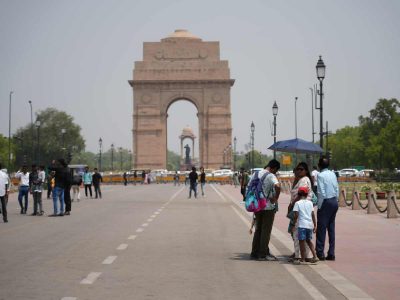Delhi: As Delhi prepares for a monsoon expected to bring heavy downpours, the city’s electricity distribution companies (discoms) are racing to prevent a familiar tragedy—electrocution. Over the past year, more than 20 people, including minors, have died in 50 separate incidents across the capital.
To tackle this growing concern, BSES Rajdhani Power Limited (BRPL) and BSES Yamuna Power Limited (BYPL) have launched a multi-pronged plan aimed at preventing power-related accidents and minimising outages during the rainy season.
Discoms launch pre-monsoon safety drive
“Our monsoon action plan is both integrated and proactive,” a senior discom official told Patriot. He said the measures aim not just to ensure public safety but also reduce the risk of power cuts during storms and heavy rain.
Key steps include preventive maintenance of equipment and raising the foundation height of transformers in low-lying areas. “We’re also working to prevent water seepage into switchgear systems and ensuring all plinth and pole-mounted transformers are fenced to prevent accidental contact,” he added.
To manage emergencies swiftly, Quick Response Teams have been deployed across the city, and a centralised war room has been set up to track and resolve complaints in real time.
Discoms have also launched a public awareness campaign to educate residents on how to stay safe during the monsoon. “With public cooperation, we are confident of ensuring a safe and reliable power supply through the rains,” the official said.
Also read: Delhi Weather: City to witness light rain, says IMD
Power theft and unplanned digging raise risks
Officials have also identified other key causes of accidents—particularly during the rainy season. Chief among them is power theft through illegal hooking of wires into electricity systems.
“Hooked-on wires are often not insulated or fixed properly,” the official explained. “During storms or rain, they can fall and cause severe injuries or even deaths.” He urged residents to report such activity and discourage others from tapping into mainlines or electrical equipment illegally.
Another frequent hazard is unplanned digging for road repairs or cable and pipeline laying. “This can lead to long power outages and serious safety threats—not just to workers but also to people passing by,” he said. Residents witnessing such digging have been asked to inform BSES immediately.
War rooms and helplines active across Delhi
To strengthen emergency response, dedicated war rooms have been set up. Officials said they are equipped to handle urgent complaints, such as fallen wires, damaged poles, and exposed cables.
Residents in South and West Delhi can call 19123 or 011-49516707. Those in East and Central Delhi can reach out at 19122 or 011-41999808.
Consumers can also report issues through WhatsApp or dedicated apps. BRPL users can message “Hi” to 8800919123 or use the BRPL Power App. BYPL users can send “Hi” to 8745999808 or use the BYPL Connect app.
For emergencies related to electric shocks or fire, residents should use the direct emergency lines—011-49516707 (BRPL) and 011-41999808 (BYPL).
Public advisory: What residents should do
BSES has also released a detailed advisory urging residents to follow basic electrical safety precautions during the monsoon.
“Due to waterlogging, the risk of electricity-related accidents increases significantly,” the advisory noted. “However, simple precautions can help consumers stay safe.”
It advised maintaining distance from all electrical installations, including poles, substations, transformers, and streetlights. Children, especially, should be warned not to play near such infrastructure or in waterlogged parks.
Residents should also have the internal wiring of their homes inspected by a Licensed Electrical Contractor. If seepage is found in meter cabins, the main switch must be turned off immediately and only restarted after repairs.
Installing an Earth Leakage Circuit Breaker (ELCB) is highly recommended. “It can prevent electric shocks and other accidents,” the advisory stated. Keeping a tester at home is also advised—if a switch appears wet, residents should check it with a tester before touching.
“If there’s any doubt, do not take risks—call a professional electrician,” the advisory stressed.
Also read: Delhi govt directs to ban fuel on overage vehicles from July 1
Residents have a role to play too
“BSES is committed to ensuring reliable power to over 53 lakh consumers and more than 2.25 crore residents,” said a company spokesperson. “But consumers also play a key role by following simple safety guidelines.”
He added that torrential rain, strong winds, waterlogging, and falling tree branches all pose risks to the city’s power grid. “We urge everyone to stay alert and maintain distance from any electrical installation.”
In certain vulnerable areas, BSES may pre-emptively switch off power to avoid accidents. “These are precautionary, life-saving measures,” the official explained. “With collective awareness, both BSES and consumers can ensure a safe and incident-free monsoon.”
Delhi records wettest May in over a century
The urgency of these precautions is underscored by record-breaking rainfall in May. Delhi received 185.9 mm of rain last month—the highest May rainfall since 1901—according to the India Meteorological Department (IMD).
The city saw two intense spells of rain, with the IMD forecasting above-normal rainfall for the Delhi–Haryana–Chandigarh region this season. Experts warn that even two or three heavy downpours per monsoon are enough to cause major urban flooding in Delhi.





